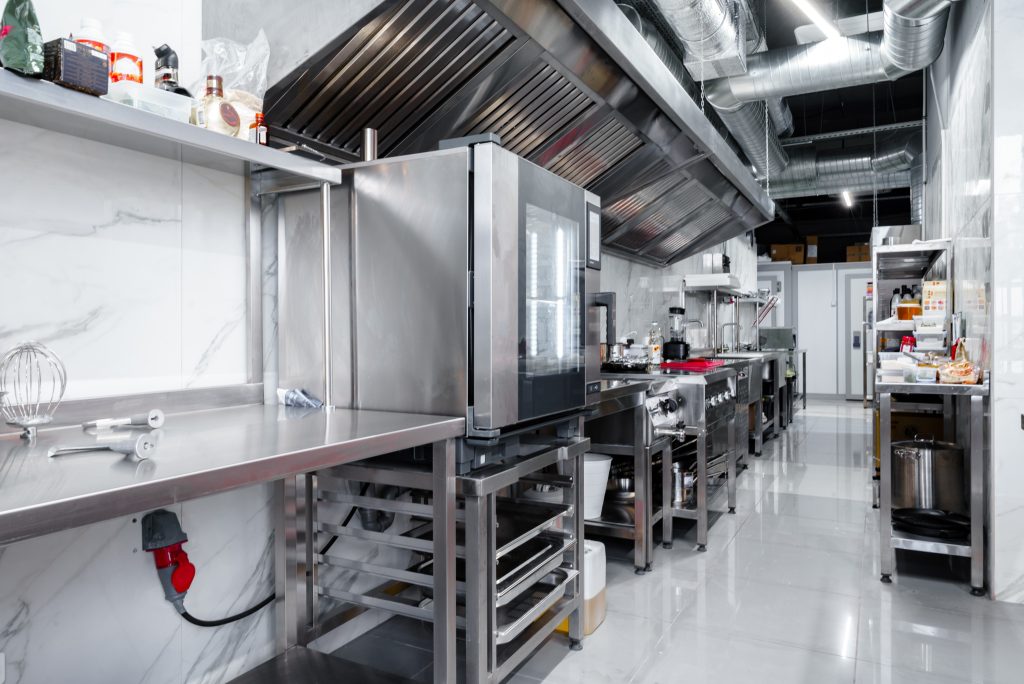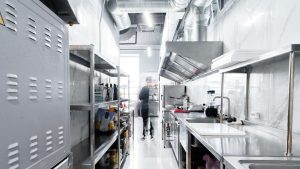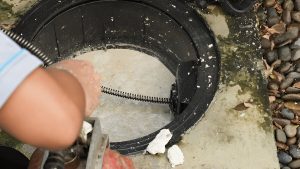Maintaining a clean kitchen exhaust system is crucial for restaurant safety in Detroit. Grease accumulation in hood systems creates serious fire hazards that put staff, customers, and property at risk. Regular professional cleaning helps prevent these dangers while ensuring compliance with local health and safety regulations.
Commercial kitchen hoods in Detroit restaurants require professional cleaning every 3 months for high-volume cooking operations, every 6 months for moderate-volume operations, and annually for light-volume facilities. The exact frequency depends on cooking volume, type of food prepared, and equipment used. Restaurants using solid fuel cooking systems need monthly cleanings.
Professional hood cleaning services remove flammable grease buildup from the entire exhaust system, including hoods, ducts, fans, and filters. This comprehensive cleaning maintains proper ventilation, reduces fire risks, and helps Detroit restaurants meet National Fire Protection Association (NFPA) 96 standards.
Key Takeaways
- Professional hood cleaning frequency ranges from monthly to annually based on cooking volume and type
- Regular hood cleaning prevents fires and ensures compliance with safety regulations
- Complete exhaust system cleaning maintains proper kitchen ventilation and reduces hazards
Hood Cleaning Frequency for Detroit Restaurants
Commercial kitchen hood systems require regular professional cleaning to maintain safety standards and prevent fire hazards. Detroit restaurants face specific requirements and guidelines that determine their cleaning schedules.
Local Health and Fire Safety Regulations
Detroit restaurants must follow NFPA 96 standards for hood cleaning frequency. Monthly cleanings are mandatory for high-volume establishments cooking with solid fuels or performing heavy grease-laden cooking.
Quarterly cleanings apply to moderate-volume operations like standard restaurants and cafeterias.
Annual cleanings are permitted for low-volume facilities like day care centers and churches.
The Detroit Health Department conducts regular inspections to verify compliance with these cleaning schedules.
Best Practices for Commercial Kitchen Maintenance
Daily Tasks:
- Wipe down hood surfaces
- Check grease collection cups
- Monitor grease buildup patterns
Professional Cleaning Schedule:
- High-volume: Monthly
- Moderate-volume: Every 3 months
- Low-volume: Annually
Document all cleaning activities and maintain service records for health inspections.
Signs That Indicate Immediate Hood Cleaning Is Needed
Visible Warning Signs:
- Grease dripping from hood surfaces
- Black or sticky residue accumulation
- Reduced airflow or ventilation efficiency
System Performance Issues:
- Excessive smoke in kitchen
- Strong cooking odors lingering
- Unusual sounds from exhaust fans
Schedule immediate cleaning if any of these signs appear, regardless of regular maintenance timing.
Choosing the Right Hood Cleaning Schedule with Hood Safe LLC
Commercial kitchen hood cleaning schedules must align with cooking volume, equipment type, and local regulations to maintain safety and compliance. Professional cleaning services protect your investment while meeting Detroit health codes.
Customized Cleaning Plans for Detroit Establishments
Heavy-volume restaurants with solid fuel cooking operations need monthly hood cleaning to prevent grease buildup and fire hazards.
Moderate-volume kitchens typically require quarterly cleaning, while light-volume operations can schedule services every six months.
Hood Safe LLC evaluates specific factors like cooking methods, hours of operation, and types of food prepared to create tailored maintenance plans.
Benefits of Regular Professional Hood Cleaning
Professional cleaning removes fire-causing grease accumulation from hood systems, ductwork, and fans.
Clean hoods improve ventilation efficiency, reducing energy costs and extending equipment lifespan.
Regular maintenance helps restaurants pass health inspections and maintain insurance compliance.
Professional documentation proves adherence to NFPA 96 standards and local Detroit regulations.
What to Expect from Hood Safe LLC’s Service Approach
Technicians perform thorough inspections before cleaning to identify potential issues or maintenance needs.
Hood Safe LLC uses specialized degreasers and tools to clean all components, from filters to exhaust fans.
Services include detailed cleaning reports with before-and-after photos for documentation purposes.
Teams work during off-hours to minimize disruption to restaurant operations.
24/7 emergency services are available for unexpected maintenance needs.



